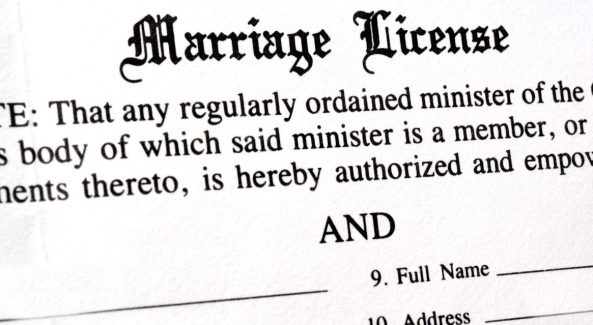This is an open letter to Kim Davis, the Clerk of Court for Rowan County, KY who is refusing to administer marriage licenses to same-sex couples due to “God’s authority.”
Dear Mrs. Davis,
Growing up, my mother always told me to keep to my mouth shut when it comes to religion and politics. What a coincidence – neither of us listened to her.
When you were elected Clerk of Court in November, I’m sure you had no idea that your actions would stir up nationwide controversy. I cannot imagine the media firestorm that you and your family are currently enduring.
I am not writing this to criticize your religious beliefs. I won’t toss around Bible verses or try to disprove what you keep closest to your conscience. I understand that we have different worldviews, and I respect your commitment to a concept of faith that I’ve never been able to grasp myself.
You see, I’m not a particularly religious person. A long time ago, I decided that I wanted to devote my spiritual energy to something bigger than myself, smaller than my doubts, and undeniably tangible: other people. In that sense, I think you and I share some common ground. As an elected official, you chose to place your faith in others, just as they have chosen to place their faith in you.
In fact, Mrs. Davis, you’ve stated all of this in your own words: “I was elected by the people to serve as County Clerk. I intend to continue to serve the people of Rowan County, but I cannot violate my conscience.”
Allow me to help.
Many Americans share the belief that there is only one definition of marriage. This is a misconception.
There are two definitions of marriage: a religious definition and a legal definition. Although they bear the same title, they are vastly different concepts.
What is the religious definition of marriage? I am nowhere near qualified to give you that answer. To some, it is a bond between a man and a woman; to others, elements such as love, trust, or even chastity are required. Ultimately, you must confer with your clergy, your church, and your God to deem what you believe is the appropriate explanation of holy matrimony.
What is the legal definition of marriage? I could put forth volumes of case law and statutes, but that would be a waste of your time. In short, it is whatever the states, the Supreme Court, and the Constitution deem that the public will recognize as the appropriate explanation of civil union.
What does a legal marriage entail? Tax benefits that come with joint filing. Government services, such as programs for military veterans and their spouses. Benefits tied to employment, including insurance coverage and family leave. Emergency medical and bereavement rights. The list goes on and on. . . and none of these items are religious.
Mrs. Davis, as a married woman, you are granted access to these privileges every day. By denying same-sex couples marriage licenses, you are only refusing them the legal definition of marriage – because the religious definition is between those individuals and their clergy, their church, and their God.
That is why each marriage license must be solemnized by an ordained minister – this can be a pastor, a priest, a judge, or that co-worker who earned his credentials online from the Universal Life Church. Their role is to affirm the religious (or irreligious) portion of the marriage. Conversely, your role is to affirm the legal portion of the marriage.
When you took the Kentucky Oath of Officers, you stated: “I do solemnly swear that I will support the Constitution of the United States. . . and that I will faithfully execute, to the best of my ability, the office of County Clerk according to law.” There was a bit in there about declining to fight duels with deadly weapons, too. The oath hasn’t been updated since 1891, go figure.
The law, on the other hand, has been updated in 2015. In his Opinion of the Court for Obergefell v. Hodges, Justice Anthony Kennedy wrote, “The issue before the Court here is the legal question whether the Constitution protects the right of same-sex couples to marry. . . The Constitution grants them that right.”
As a public servant, you are obligated to uphold the Constitution and represent everyone within your jurisdiction. You do not have the right to decide to whom the laws apply.
When I visited the website for the Rowan County Clerk of Court, I couldn’t help but notice Kentucky’s state seal sitting in the right-hand corner. It displays two men shaking hands, enveloped by the words “United we stand, divided we fall.”
Please remember this motto the next time you are the arbiter of division.
If indeed there is a next time.
Sincerely,
Sarah Massey

